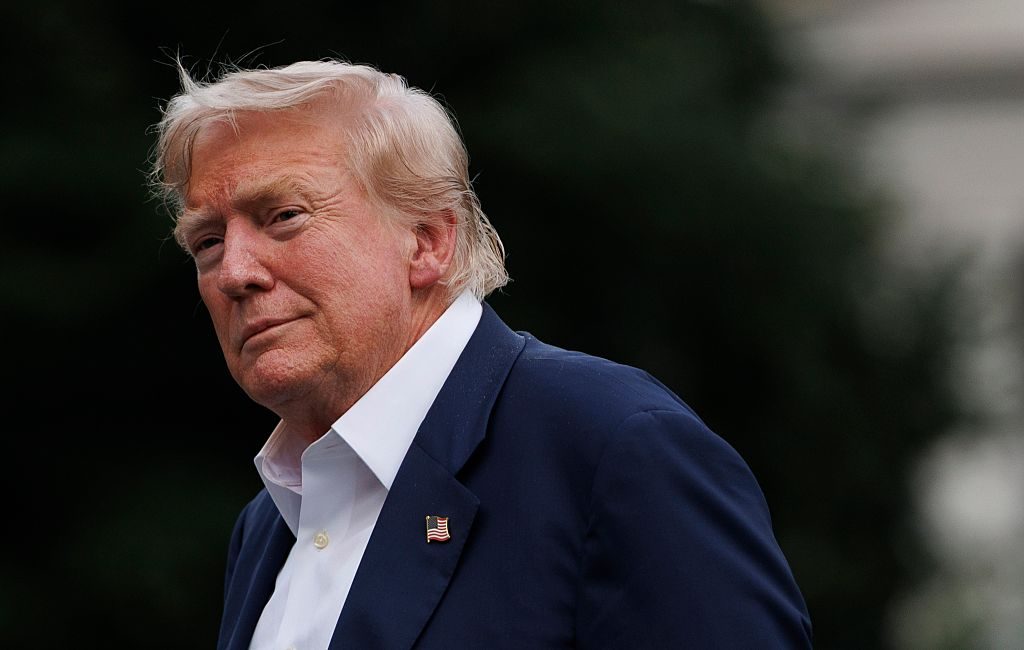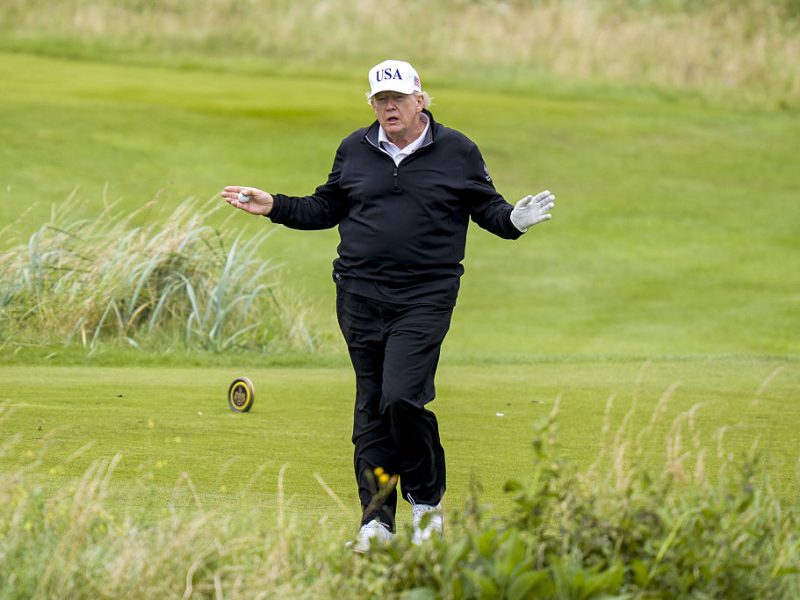Donald Trump has threatened to impose a 35% tariff on the EU if Brussels fails to fulfil its promise to invest $600 billion in American infrastructure.
“Well, then they pay tariffs of 35%,” Trump told CNBC on Tuesday, when asked what action he would take if the EU failed to uphold its side of the EU-US trade deal.
As part of the agreement, most EU exporters will face a flat 15% US tariff – half the 30% previously threatened by Trump. In return, the EU pledged to lower its own tariffs on various goods and to boost purchases of US energy by $750 billion over the remaining three and a half years of Trump’s presidency.
“They brought down their tariffs. So they paid $600 billion. And because of that, I reduced their tariffs from 30% down to 15%,” Trump said. “And a couple of countries came: ‘How come [the] EU is paying less than us?’ And I said, well, because they gave me $600 billion. And that’s a gift; that’s not like, you know, a loan, by the way.”
“They gave us $600 billion that we can invest in anything we want,” Trump added. “I can do anything I want with it. And the purpose was, they’ve been, you know, ripping us for so many years that it’s time that they pay up, and they have to pay up. We couldn’t afford to have the deficits.”
Trump has repeatedly criticised the US’s deficit with the EU, which he has claimed amounts to $350 billion. According to the European Commission, the bloc ran an overall surplus of €50 billion with the US last year, with a €200 billion surplus in goods and a €150 billion deficit in services.
Commission officials have claimed that the deal’s purchasing and investment commitments, which are widely considered to be unrealistic and cannot be legally enforced by Brussels, are only “projections” that are based on the “very clear intentions” of private EU companies.
An official White House account of the deal also states that the EU has committed to purchase “significant amounts of US military equipment” – a claim rejected by Brussels.
An EU official said on Tuesday that a forthcoming EU-US joint statement, which is “90-95% ready”, will offer “clarity” on many of the deal’s details, but did not say that this would resolve the disagreement over military purchases.
The Commission declined to comment.

